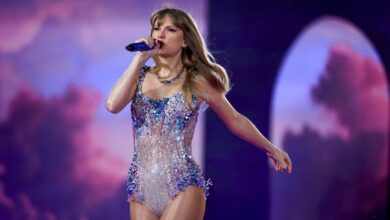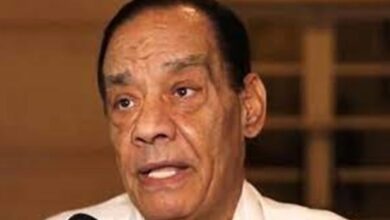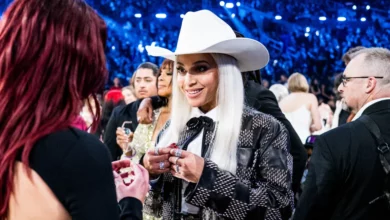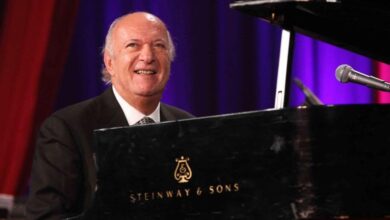For eight consecutive nights, the courtyard of Al-Ghouri Dome in Islamic Cairo has been packed full as the fourth edition of the International Samaa Festival for Sufi Music and Chanting attracts an eager crowd.
Fourteen bands are participating in the festival this year, with at least three performing every night until 25 August, to the audience’s delight. At times, the audience gets to experience the bands playing solo, reflecting their characteristic rhythms and beats; on other nights, they hear the groups playing ensemble in a “workshop setting” as Intisar Abdel Fattah, the conductor and director of the festival likes to describe it. So far, there have been two workshop performances; the third and final one takes place tonight with the participation of the Algerian, Spanish, Sudanese and Egyptian troupes.
Although some were skeptical about mixing together different music genres, the experience has been uplifting and Abdel Fattah has been able to blend in different types of Sufi music along with American Gospel music through the "Voices of Inspiration" choir as well as the Egyptian Coptic Hymns choir.
Last week, members of “Voice of Inspiration” walked among the audience, inviting them to sing along with "Oh, what a happy day, when my sins are washed away."
Much excitement also surrounded the performance of the Pakistani band "Rafi Peer," Comprising three different groups that reflect different Pakistani Sufi music styles from the traditional to the popular. Each time their vocalist would sing, the audience would clap in exuberance. And in addition to Pakistani audience members waving their flags up high, one young man neatly dressed in a stripped white shirt and dark trousers would occasionally perform traditional dances with the flag in the aisle. Everyone would accompany the gushing beats from the band’s marching drum by rhythmic clapping whenever the drummer played.
Tensions, however could still be felt between the Pakistani and the Indian groups – being the only two troupes that sit on the floor, they ended up sitting side by side on the stage. The two were not scheduled to perform together except on the opening night, yet after the Syrian group withdrew from the festival and the chanter of the Sudanese troupe caught the flu, they repeatedly performed together under the masterful directing of Abdel Fattah.
Unfortunately, though much of the concerts were undermined by persistent problems in sound. Chanchal Bharti, the female lead singer of Indian Qawwali group was hardly heard due to the loud music coming through the sound amplifiers, although it was she who mostly guided the musicians during their performances with her hand gestures and body language. Such technical problems would occasionally trigger a spontaneous conversation between Abdel Fattah (standing in front of the troupes and waving his arms in the air in the classic conductor style) and sound engineer Hany Hanna (seated at the very back, bending over his control board) which appeared like an improvised comedy rather than a dispute.
Abdel Fattah would sarcastically explain to Hanna that “the percussion shouldn't be higher than the soloist voice." And the audience would laugh at this entertaining act, staying through the shows despite persistent technical problems.
Another group whose fan base continues to grow is the Indonesian “Dai Nada" that plays without any musical instruments. Participating for the third time in the festival, many audience members come specifically to see them perform. “Dai Nada” comprises three main groups: the first makes percussion sounds, the second hums to create musical effects and the last chants for God and Prophet Mohamed. Their lyrics are captivating and easy to relate. The group sings in Arabic, English and French.
Samaa festival continues until 25 August at Ghouri Dome, 111 Azhar Street, Ghouria, Fatimid Cairo
The shows start daily at 9:30 pm




